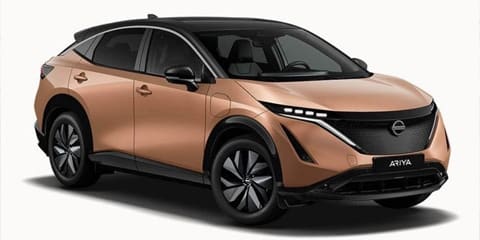Despite the government decision to postpone the UK ban on the sale of new petrol and diesel vehicles, Nissan has vowed to “press ahead” with its ambition to sell solely electric vehicles in Europe by 2030. As Nissan unveils new EV designs in London, the Japanese automaker announced that by the end of the decade, all new vehicles will be totally electric in Europe, expanding to its current range that includes the Nissan Ariya, Nissan Leaf and and Nissan NV200.
When the Prime Minister announced a U-turn on a number of climate-related initiatives recently, including delaying the scheduled ban on new petrol and diesel vehicles from 2030 to 2035, he disappointed green campaigners, MPs, and sectors of the automotive industry. This delay may interfere with automakers’ efforts to gradually phase out petrol and diesel vehicles after they have already invested billions changing their models and supply lines towards electric vehicles.
Nissan, on the other hand, stated that it is “pressing ahead with plans to achieve 100% EV in Europe by 2030, with all new Nissan models from now to be all-electric in Europe”.
By 2030, Ford and Vauxhall’s owner Stellantis, and Volvo all aspire to sell only electric vehicles globally. Ford and Vauxhall will also be entirely electric in Europe. These traditional automakers are vying to overtake electric innovators like Tesla, who continue to dominate the electric market.
There is no turning back, according to Makoto Uchida, president and CEO of Nissan. Internal combustion engines must give way to other propulsion systems. Before 2030, the automaker intends to release eight hybrid and 19 all-electric cars. It also plans to introduce “cobalt-free” technology by 2028 in an effort to reduce the price of EV batteries by 65%. Additionally, it is developing a battery that will go on sale in five years and have a charging time reduction of 30%.
Nissan intends to invest €40 million (£35 million) in the Nissan Design Europe building in London and the Nissan Technical Centre Europe (near Bedford) on new personnel, technology, and facility upgrades. At the latter location, it will spend more than €26 million on electrification projects alone. Autonomous vehicle research is being conducted at the technical centre. The goal of the government-funded research is to create a self-driving vehicle that can safely go across residential, urban, and rural areas. The plan involves the development of maps and systems that enable the vehicle to handle a variety of various on-road circumstances.
Nissan, which employs 7,000 people in the UK, will shortly introduce two new EV’s in Europe, a vehicle that will replace the “entry-level” Micra and another that will be constructed at Nissan’s sizable Sunderland plant as part of a $1 billion initiative.
Image Source: Nissan Ariya, Nissan UK
We have compatible charging cables for the Nissan Ariya, Nissan Leaf (Type 2 socket), Nissan Leaf (Type 1 socket) and the Nissan NV200 van



